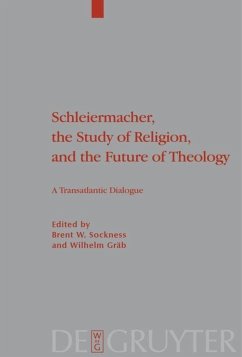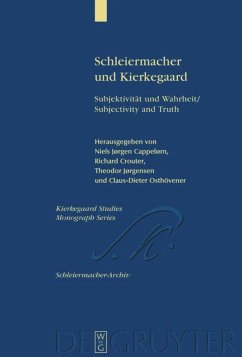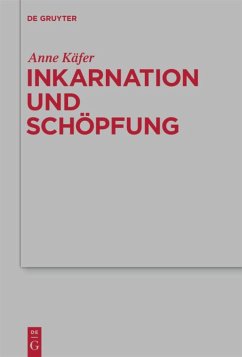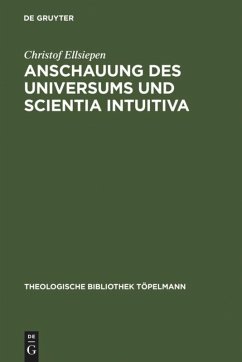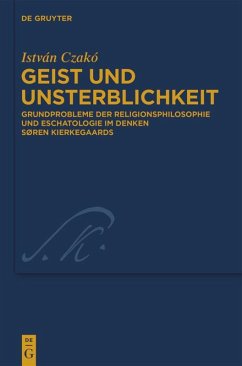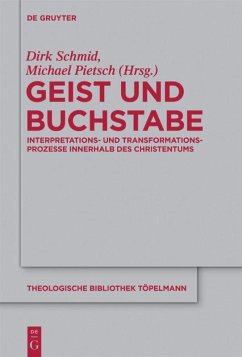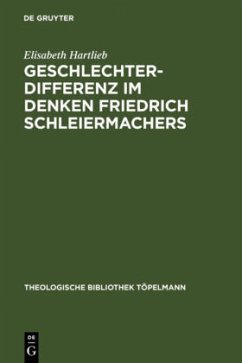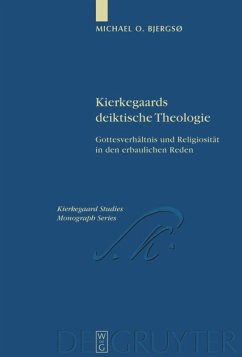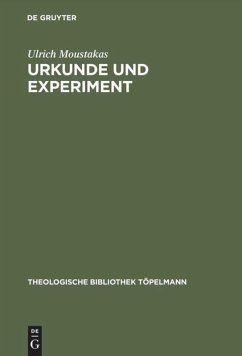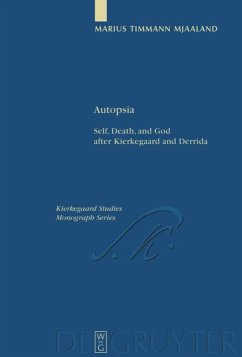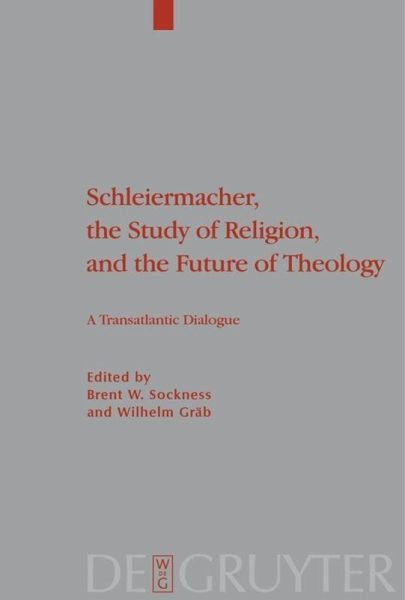
Schleiermacher, the Study of Religion, and the Future of Theology
A Transatlantic Dialogue
Herausgegeben: Sockness, Brent W.; Gräb, Wilhelm
Versandkostenfrei!
Versandfertig in 6-10 Tagen
145,99 €
inkl. MwSt.

PAYBACK Punkte
73 °P sammeln!
The past three decades have witnessed a significant transatlantic and trans-disciplinary resurgence of interest in the early nineteenth-century Protestant theologian and philosopher, Friedrich Schleiermacher (1768-1834). As the first major Christian thinker to theorize religion in a post-Enlightenment context and re-conceive the task of theology accordingly, Schleiermacher holds a seminal place in the histories of modern Christian thought and the modern academic study of religion alike. Whereas his â??liberalismâ? and humanism have always made him a controversial figure among theological traditionalists, it is only recently that Schleiermacherâ??s understanding of religion has become the target of polemics from Religious Studies scholars keen to disassociate their discipline from its partial origins in liberal Protestantism. Schleiermacher, the Study of Religion, and the Future of Theology documents an important meeting in the history of Schleiermacher studiesat which leading scholars from Europe and North America gathered to probe the viability of key features of Schleiermacherâ??s theological and philosophical program in light of its contested place in the study of religion.



